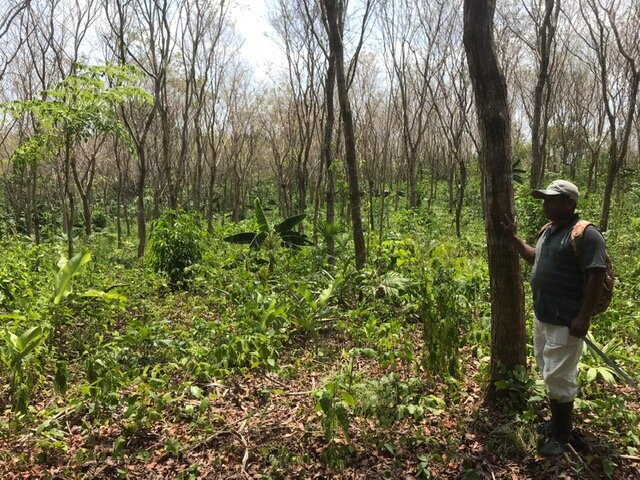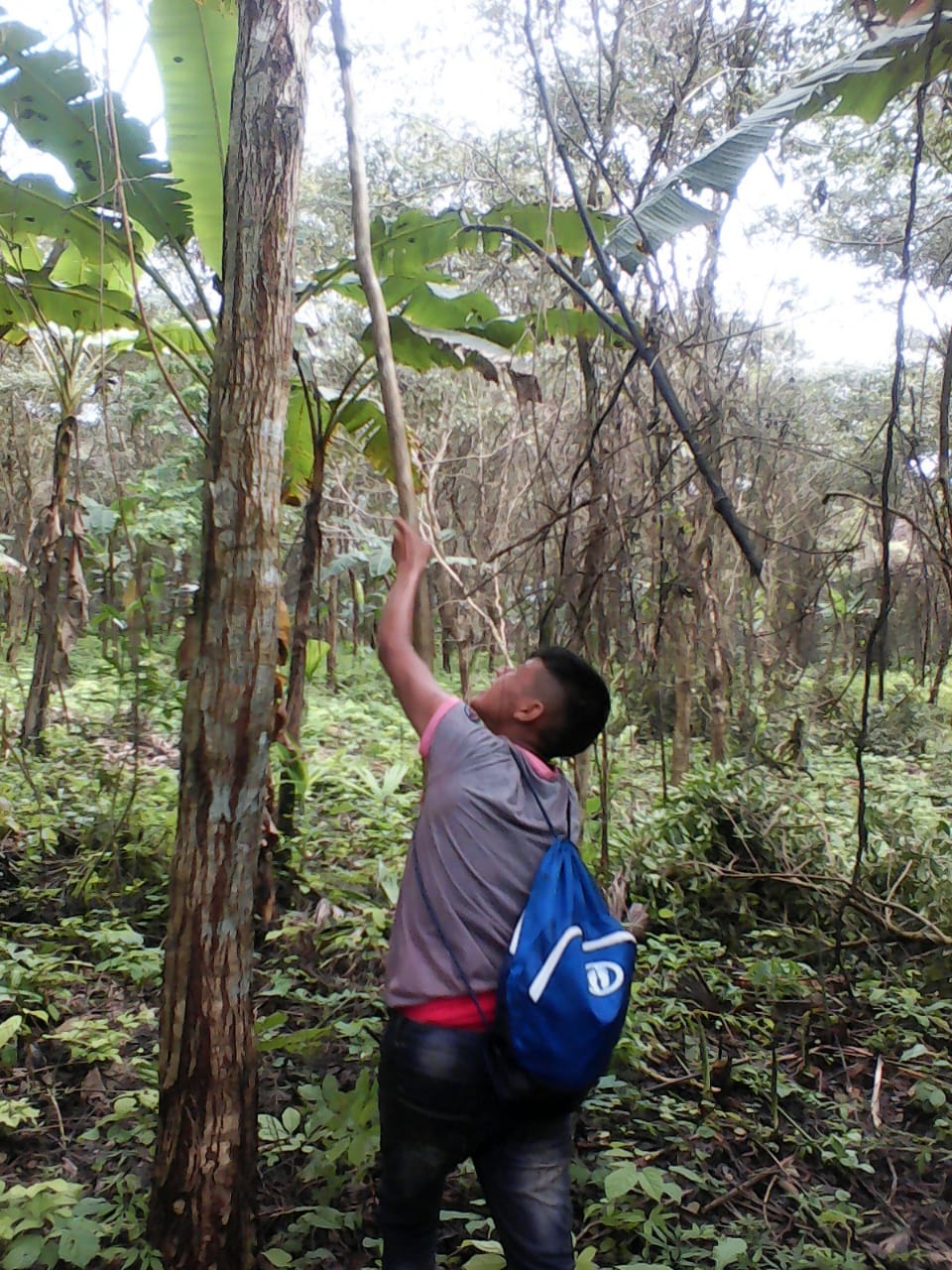 A group of workers in Nuevo Paraiso after a day of workAs the global demand for forest resources continues to grow, small forest communities are gradually losing control over those resources. But over the past several years, investing in locally controlled forestry (LCF) has gained support as a way to empower these communities to regain ownership.
A group of workers in Nuevo Paraiso after a day of workAs the global demand for forest resources continues to grow, small forest communities are gradually losing control over those resources. But over the past several years, investing in locally controlled forestry (LCF) has gained support as a way to empower these communities to regain ownership.
LCF is formally defined as
“The local right for forest owner families and communities to make decisions on commercial forest management and land use, with secure tenure rights, freedom of association and access to markets and technology.”
Between 2009 and 2012, The Forests Dialogue, Growing Forest Partnerships and the government of Sweden convened a series of meetings between small forest owners, investors, bankers, philanthropists and indigenous communities to explore ways to increase investment into LCF.
Based on those meetings, The Forests Dialogue produced a report called Investing In Locally Controlled Forestry that presents ways to catalyze investment for community forestry enterprises.
One of the key findings of the report is the need for two distinct types of investment capital: enabling investment and more traditional asset investment.
Enabling Investment
In a recent post on the Guardian’s website, one of the lead authors of the report Duncan MacQueen gave an overview of these types of financing.
Enabling investment describes the kind of early stage, foundational support that small forest enterprises need just to be able to operate. They are
“investment in rights, organisation and capacity, from which a tangible financial return is not expected”
Funding the “ground work” usually requires philanthropic support, but we wouldn’t say that enabling investments necessarily don’t produce a return (we see our shareholders as enabling investors in some ways; more on that below). But because they catalyze traditional asset investment, enabling investments may generate just as much, if not more positive impact. The report goes on to describe the four types of enabling investments that are increasing support for locally controlled forestry investments:
“Dialogue participants identified four types of enabling investment—commercial forest rights, business capacity, organisation-building and fair and balanced asset investment deals—that have been critical to successful investments in LCF worldwide.”
For Planting Empowerment, an example of an enabling investment would be investing in an NGO that advocates on behalf of indigenous land rights.
Asset investment
The report defines asset investing as an investing “from which a tangible financial return is expected.” This type of investment is more familiar to traditional forestry investors used to dealing with clear land ownership and a well organized managing partner. Gaining this type of investment is usually out of reach of community forest enterprises because they lack the basic organization and operating securities that traditional asset investors look for. Asset investing can take a variety of shapes, from socially responsible investors to institutional endowments and could be debt or equity.
Where do we fall?
Some of our shareholders reading this might be wondering how we would characterize their investment--enabling or asset. The answer is somewhere in between, but probably closer to asset investment.
In some ways, enabling investment describes the type of fundraising we’ve been doing for the past six years. By providing the “seed capital” for Planting Empowerment, our shareholders enable us to develop agroforestry projects, train our workforce and partners on how to manage them, and support our community forestry partner Arimae’s struggle to defend its reservation from illegal logging. Our shareholders understand that theirs is a long term investment, but one that will produce returns once we begin to sell timber and crop harvests.
But we and our investors can only do so much. In order to increase the number of smallholders developing forestry projects, our partner communities need access to credit for those kinds of projects, more access to education, and in the case of Arimae, the assurance that the Panamanian government will enforce their communal land rights. One example of an enabling investment in our partner community of Arimae is the UNDP-GEF Small Grants award that enabled the community to develop a native species tree nursery and assess the carbon storage in its rainforest reservation. Both of those activities represent potential income for the community.
Without compromising our mission, Planting Empowerment is also aiming to bring on more traditional asset investors who represent larger amounts of money. Larger investments mean we can partner with more communities and thereby expand our impact to a larger group of beneficiaries. As a startup with an unconventional model, we don’t perfectly fit the risk profile of the average asset investor, but over the next five years, we envision becoming a self-sustaining forestry business that attracts more of those investors based on sales of our tropical hardwoods, cash crops and possibly carbon credits.
Expanding sustainable forestry as an alternative to cattle ranching and slash and burn agriculture--and doing it profitably--will take both enabling investment and asset investment. We want to equip our community forestry partners to develop their own profitable forestry projects, and that will take investing in commercial forest rights, developing their business capacity, and organization-building within communities. Over the next several years as we demonstrate that sustainable forestry can be both profitable and beneficial, we think that more asset-type investors will get interested.






